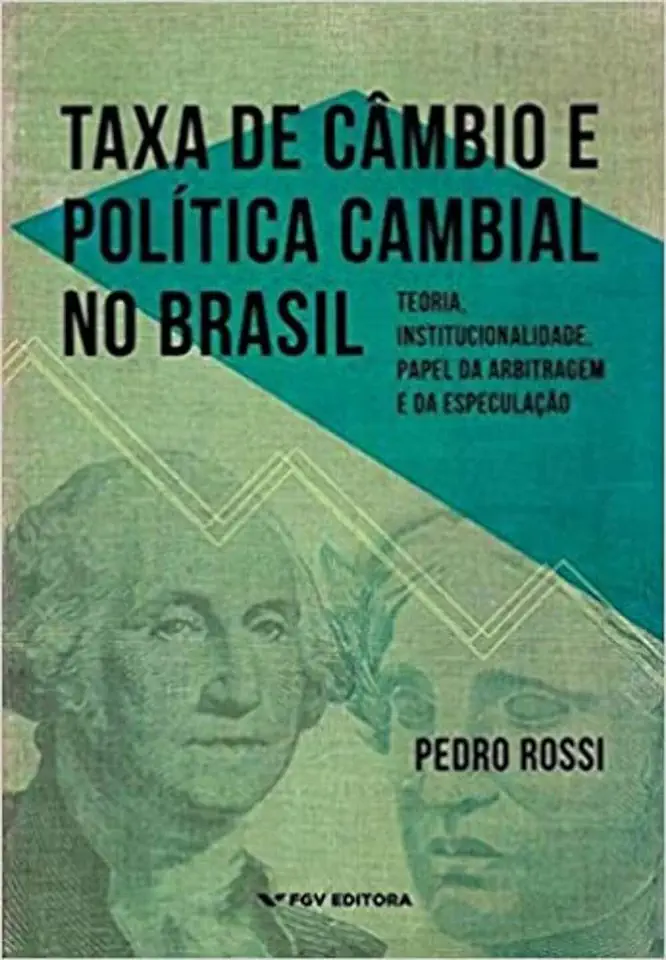
Exchange Rate and Exchange Rate Policy in Brazil - Theory, Institutionality, Role of Arbitration and Speculation - Pedro Rossi
Exchange Rate and Exchange Rate Policy in Brazil: A Comprehensive Analysis
In his groundbreaking book, "Exchange Rate and Exchange Rate Policy in Brazil - Theory, Institutionality, Role of Arbitration and Speculation," Pedro Rossi delivers a comprehensive and insightful examination of the complex dynamics of exchange rate determination and policymaking in Brazil. Drawing upon a wealth of theoretical frameworks and empirical evidence, Rossi offers a unique perspective that sheds light on the intricate interplay between economic theory, institutional arrangements, and market forces in shaping Brazil's exchange rate behavior.
Theoretical Underpinnings and Analytical Framework
Rossi begins by establishing a solid theoretical foundation for understanding exchange rate dynamics. He meticulously reviews various theoretical approaches, including the monetary approach, the portfolio balance approach, and the asset market approach, highlighting their strengths and limitations in explaining exchange rate movements. This comprehensive analysis provides readers with a deep understanding of the theoretical underpinnings that guide exchange rate analysis.
Institutional Framework and Policy Evolution
Rossi then delves into the institutional framework and policy evolution of Brazil's exchange rate regime. He offers a detailed account of the historical development of Brazil's exchange rate policies, from the early days of fixed exchange rates to the adoption of more flexible exchange rate arrangements. Rossi meticulously examines the institutional structures, policy instruments, and decision-making processes that have shaped Brazil's exchange rate policy over time.
Role of Arbitration and Speculation
One of the unique contributions of Rossi's book is his in-depth analysis of the role of arbitration and speculation in exchange rate dynamics. He argues that these market forces play a crucial role in influencing exchange rate movements and shaping market expectations. Rossi provides empirical evidence to support his arguments, demonstrating how arbitrage activities and speculative behavior can amplify or dampen exchange rate fluctuations.
Empirical Analysis and Case Studies
To further substantiate his theoretical and institutional analysis, Rossi presents a series of empirical studies and case studies. He employs advanced econometric techniques to analyze the impact of various factors, such as monetary policy, trade balance, and foreign exchange intervention, on Brazil's exchange rate. The empirical findings provide valuable insights into the determinants of exchange rate movements and the effectiveness of different policy interventions.
Policy Implications and Recommendations
Based on his comprehensive analysis, Rossi concludes with a set of policy implications and recommendations for managing exchange rate dynamics in Brazil. He offers practical guidance on how policymakers can navigate the challenges of exchange rate volatility, maintain macroeconomic stability, and foster economic growth. Rossi's policy recommendations are well-grounded in theory and supported by empirical evidence, making them invaluable for policymakers, economists, and practitioners alike.
Conclusion
"Exchange Rate and Exchange Rate Policy in Brazil - Theory, Institutionality, Role of Arbitration and Speculation" is a must-read for anyone seeking a deeper understanding of exchange rate dynamics and policymaking in Brazil. Pedro Rossi's comprehensive analysis, rigorous theoretical framework, and empirical evidence provide a unique and valuable resource for academics, policymakers, and market participants. This book is an essential addition to the literature on exchange rate economics and will undoubtedly shape future research and policy discussions in Brazil and beyond.
Enjoyed the summary? Discover all the details and take your reading to the next level — [click here to view the book on Amazon!]